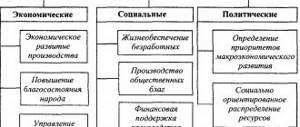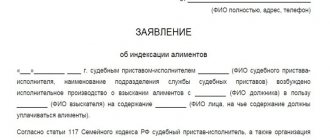When it comes to illegal business activities, many liberal-minded citizens experience a surge of discontent. Indeed, the country’s investment climate and business initiative are already poor (which is gradually turning into “lack of initiative”), and here our deputies are “polishing” the legislative basis for ever new fines and fees.
Punishments, you see, were invented for illegal business activities (and this is in 2021) - they finally finish off an unborn business! However, it cannot be denied that such restrictions are present in all countries without exception. And this is what creates order and legality in the market.
If the concept of illegal business activity did not exist, then some manufacturers would have an unjustified competitive advantage, and in addition, consumers of many goods would put their lives at direct risk.
It seems interesting to discuss in more detail the topic of fines for illegal business activities in 2021 in Russia.
How to determine that an activity is entrepreneurial?
If the legislator provides for some kind of liability for any activity that he calls entrepreneurial, then it is necessary to introduce criteria for its determination. Let us isolate these characteristics, and not from a formal standpoint, but as it happens “on the ground.” So, an activity that involves the existence of at least two transactions of the same type can be called entrepreneurial... in a year. Comprehensive, isn't it?
Indeed, by October you can forget about what you made yourself and sold original hand-made jewelry to someone on the Internet back in January. But “big brother” sees everything, tracking transactions made from one IP address. Monitors and takes notes. At the same time, there is no need to think that after a second similar transaction is completed, the aspiring entrepreneur will be called to the district office of the Federal Tax Service to clarify the situation and receive an explanation. Tax authorities in the Russian Federation work more rudely and irresponsibly:
- Materials will be filed against the person in court;
- Without his participation (due to the fact that he simply will not be notified about it), a meeting will be held at which he will be found guilty of illegal business activities, and penalties will be imposed on him;
- Then the case will be transferred to the bailiffs, and the person will learn that he turns out to be an illegal entrepreneur only after the corresponding funds have been debited from his account. (Well, or when the bailiffs appear on the threshold of his apartment).
In addition, tax authorities consider the following circumstances to be signs of entrepreneurial activity:
- Testimony of buyers (and in connection with the demand of the main officials in the country to increase the “transparency” of the business climate in the Federal Tax Service, the number of full-time positions of straw buyers has increased - there is nothing else to do);
- The presence of advertising for the goods or services offered (moreover, even a contextual post in an article on the Internet can be considered advertising);
- Availability of product samples (if at the time of inspection you had a copy of such a product with you, for example, a hairpin that you make manually for yourself and offer for sale, then you can be congratulated, you are an entrepreneur);
- Wholesale purchases of both the product itself (obviously for resale purposes) and components for it. (But the law does not specify exactly what size of purchases is meant by wholesale, leaving the decision to the “mercy of the tax authorities”);
- Availability of accounting documentation (and the most “favorite” here are receipts for receiving money and cash receipts, however, records of receipts and expenses are also suitable);
- The fact of established connections with suppliers (understand it as you wish, or simply refrain from drinking tea with someone - in case he turns out to be a supplier of... something);
- Availability of premises rental agreements. (As one famous police colonel said: “If you have a safe, it means either you have already stolen the money, or you are preparing to do so.” If a private person has rented any space, then this is definitely an attempt, not even - attempt to conduct business).
If any of the above applies to you, then it is not so important that you have not registered any legal entity; you are an illegal entrepreneur. It should be remembered that:
- A fine for illegal business is imposed, among other things, on individuals;
- It doesn't matter whether you made a profit or not. Responsibility arises only for the very fact of the desire to do something secretly (and, as a result, avoid paying taxes).
In addition, an additional legal status is currently recognized by law - “self-employed citizen”. This is done mainly for those individuals who are engaged in micro-businesses, only in the provision of services. Therefore, if a person is found to be active in the provision of tutoring or transport services without official registration of this status, then we are also talking about a fine for illegal business activity.
What does the term "illegal" mean?
According to the law, carrying out business activities without registering an individual entrepreneur is illegal and is subject to prosecution. The term “illegal” means running a business without registering as an individual entrepreneur with the Federal Tax Service of the Russian Federation. It is illegal to conduct business in a group of occupations for which the law requires obtaining a special permit - a license.
To identify facts of illegal entrepreneurship, Federal Tax Service specialists analyze a person’s conduct of economic activity; the following signs indirectly or directly indicate the implementation of entrepreneurship (Resolution of the Plenum of the Armed Forces of the Russian Federation No. 18 of October 24, 2006):
- testimony of counterparties or clients who paid for goods or services;
- advertising, including in the form of samples and advertisements in the media;
- carrying out wholesale purchases;
- establishing connections and contacts with counterparties and clients to conduct business;
- availability of receipts or other documents on the sale of goods and provision of services;
- keeping records of transactions;
- concluding contracts for business purposes.
If a person’s actions are proven to constitute a crime or offense (the fact of deliberately conducting income-generating activities without registration), a fine for illegal entrepreneurship of individuals will follow in the amount established by law.
Types of business activities that are illegal
However, some types of activities that can be performed by already registered legal entities and individual entrepreneurs are also illegal. We are talking about the lack of appropriate permits for:
- Trade in certain types of goods.
A striking example is the retail trade of alcohol-containing products without an appropriate license issued to a legal entity in connection with a given outlet.
- Producing works and services without the necessary licenses and certificates.
An example here is the implementation of professional construction activities in the absence of SRO certificates. In addition, it is also a violation to exceed the parameters of work accepted by the organization: for example, the standard SRO certificate states that the amount for which a legal entity can enter into an agreement should not exceed 10 million rubles. If the agreement is concluded for a large amount, this means that illegal business activity is taking place.
In addition, for engaging in certain types of activities without having (and repeatedly checking) licensing documentation, criminal liability may arise (in accordance with the current Criminal Code). An example is the sale of medical drugs without an appropriate pharmaceutical license issued by the relevant ministry of the Russian Federation.
And if the rules for the sale of certain goods or the provision of services are grossly violated, then revocation (cancellation) of the license documentation and the imposition of penalties on violators should be taken as repressive measures. This activity immediately becomes illegal for this business entity. In this case, we may be talking about the sale of alcohol or nicotine-containing products to minors.
Tax avoidance
In addition to illegal business activities, it is worth saying that not only a legal entity must report on its income, which is logical. Individuals who fail to report their income are subject to criminal liability. This crime is qualified under Article 198 of the Criminal Code of the Russian Federation as evasion of taxes and fees.
There are two grounds for bringing such liability:
- failure to submit a declaration;
- provision of false information on a large or especially large scale in the declaration.
Large amount of unpaid taxes: the amount of all taxes and fees for 3 years in a row is more than 900 tr, provided that the share of unpaid taxes and (or) fees exceeds 10% of the amounts of taxes and (or) fees payable, or exceeds 2.7 million rubles
Types of punishment for large size:
- fine from 100 tr. up to 300 tr. or in the amount of salary (salary) or other income for a period of 1-2 years;
- or forced labor for up to 1 year;
- or arrest for up to 6 months;
- or imprisonment for up to 1 year.
Particularly large amount of unpaid taxes: within three years, the amount of taxes and fees is more than 4.5 million rubles, provided that the share of unpaid taxes and (or) fees exceeds 20% of the amounts of taxes and (or) fees payable, or exceeding 13.5 million rubles.
Types of punishment for especially large amounts:
- a fine in the amount of 200 thousand to 500 rubles. or in the amount of wages or other income received for a period from 18 months to 3 years,
- or forced labor for up to 3 years;
- or imprisonment for up to 3 years.
Important! If you have committed this type of crime for the first time, you may be released from criminal liability, subject to full repayment of all debts, penalties and fines provided for in this article.
Punishment of individuals for illegal business activities in 2021
Illegal business can be logically divided into:
- a business that is illegal due to the fact that it is not properly registered (and therefore does not fall into the sample of tax subjects);
- a business that operates in violation of current rules and restrictions (conditionally - activities without the necessary licenses).
So, in accordance with the articles of the Tax and Criminal Codes, as well as the Code of Administrative Offenses, individuals bear all types of responsibility provided for by these documents. Tax authorities through the court seek payment of fines, as well as compensation for underpaid taxes. At first glance, this is fair, however, the roadmap for exactly how this usually happens has been detailed above.
Individuals for conducting illegal business are charged personal income tax on the amount of proven income, as well as penalties for late payment of unpaid income. This concerns compensation for “lost” state revenues.
And now the penalties:
- The fine for the actual owner of a business who has not submitted an application for registration to the Federal Tax Service is 10% of the amount of proven income (profit) from illegal business activities carried out for a period of up to 89 days (but not less than 20 thousand rubles). Profit is an indicator that depends on both revenue and costs. So if the accused wants to demonstrate his costs, reduce the amount of profit, and thereby confirm the positions of the attacking tax authorities, then he can try to do this. And the Federal Tax Service employees in this case are usually limited to “issuing an invoice” for the amount of revenue received.
- The fine for illegal business activities carried out without registration for more than 90 days will be 20% of the amount of profit made, but not less than 40 thousand rubles.
- Additional penalties in the amount of 5 thousand rubles are imposed on those entrepreneurs who begin to receive revenue from their business before registering the legal shell. The line of legality here is thin: there must be evidence of initially good intentions. That is, we can talk about starting a business if there is a delay in registering a legal entity or individual entrepreneur (provided that the documents have already been submitted by the entrepreneur). If registration is delayed for more than 90 days, then the fine doubles - up to 10 thousand rubles.
Separately, the Code of Administrative Offenses of the Russian Federation provides for the imposition of additional penalties for illegal conduct of business:
- If business activities are carried out without registering a legal entity, then the fine in 2021 ranges from 500 rubles to 20 thousand rubles (at the discretion of the police officer who imposes it).
- If an individual violates the requirements of the law and trades, for example, in licensed activities without the appropriate documents, then the fine is only from 2 to 2.5 thousand rubles. However, the item of trade, as well as the means of production (the value of which can already be measured in hundreds of thousands and even millions of rubles) are confiscated.
Administrative responsibility
So, administrative responsibility for ongoing business activities (if there is no state registration or special permission - license).
1. If business activity is carried out without state registration (either an individual entrepreneur or a legal entity must be registered), then the administrative fine for this type of offense ranges from 500 to 2000 rubles.
2. If business activity is carried out without a special permit (referred to as a license) - if such a permit (such a license) is mandatory - the administrative fine for individuals ranges from 2000 to 2500 rubles , manufactured products, production tools and raw materials may also be confiscated.
- Officials may be subject to a fine of 4,000 to 5,000 rubles , and confiscation of all manufactured products may also be carried out.
- Legal entities may be subject to a fine of 40,000 to 50,000 rubles , and confiscation of products is also an option.
3. If, when carrying out business activities, the conditions stipulated by a special license (permit) are violated, a warning is issued or an administrative fine is imposed:
- for individuals – from 1500 to 2000 rubles ;
- for officials - from 3,000 to 4,000 rubles ;
- for legal entities - from 30,000 to 40,000 rubles .
4. If, when carrying out such activities, the conditions provided for by a special license (permit) are grossly violated, an administrative fine follows:
- for persons who have not formed a legal entity - 4000 - 8000 rubles , activities may also be suspended for 3 months;
- for officials - 5,000 - 10,000 rubles ;
- for legal entities - 100,000 - 200,000 rubles or suspension of activities for three months.
Note. A gross violation is determined by the Government of the Russian Federation depending on what specific licensed type of activity was violated.
Summary
The fines for illegal business activities in Russia in 2020 are such that, looking at them, any desire to engage in any business at all is discouraged. The tax authorities of the Russian Federation employ specialists with extremely low qualifications (this is evidenced by the extremely high turnover). Police officers are also not inclined to exercise discretion when detecting any violations. As a result, the domestic law enforcement and tax systems have pronounced fiscal and punitive functions. And no more!
Alexander Tikhomirov
Entrepreneur, business coach, specialist in personnel training on the following topics: management, improving customer experience, personal effectiveness, working with objections.
Entrepreneurial activity without forming a legal entity
Individual entrepreneurship is a more popular form of registration among ordinary citizens than other forms. Therefore, entrepreneurial activity without the formation of a legal entity requires additional consecration.
The main advantage of such activities is that a commercial organization is a fairly flexible and mobile structure.
Individual entrepreneurs operate within narrow areas of activity, so they can respond very quickly to all changes, adapting to new economic conditions.
In addition, entrepreneurial activity of citizens without the formation of a legal entity has a number of other advantages that increase its popularity. In particular, such an organization has the opportunity to provide more simplified reporting to the authorized bodies on its financial activities and profits received.
If we analyze the legal literature, then in addition to the above advantages, we can also highlight the following advantages:
- the process of creating and liquidating a business has been simplified several times;
- The owner of the organization can use the proceeds received from business activities at his own discretion;
- individual entrepreneurs are exempt from paying property tax, within the framework of which their activities are carried out;
- decisions within the framework of individual entrepreneurs are made much easier, since a meeting of shareholders, shareholders, etc. is not required.
Despite significant advantages, this form of entrepreneurship also has significant disadvantages, which are embodied in the fact that:
- In case of failure to fulfill obligations, an entrepreneur is liable with his real or movable property.
- Entities are limited by law in their rights to obtain certain types of licenses.
- It is almost impossible to get a lucrative contract with a large company, since organizations refuse to cooperate with individual entrepreneurs.
- Maintaining an individual entrepreneur requires constant participation from the owner. There is no provision for the appointment of a managing director.
Entrepreneurial activity is one of the most important areas that allows the Russian economy to develop progressively and stably.








